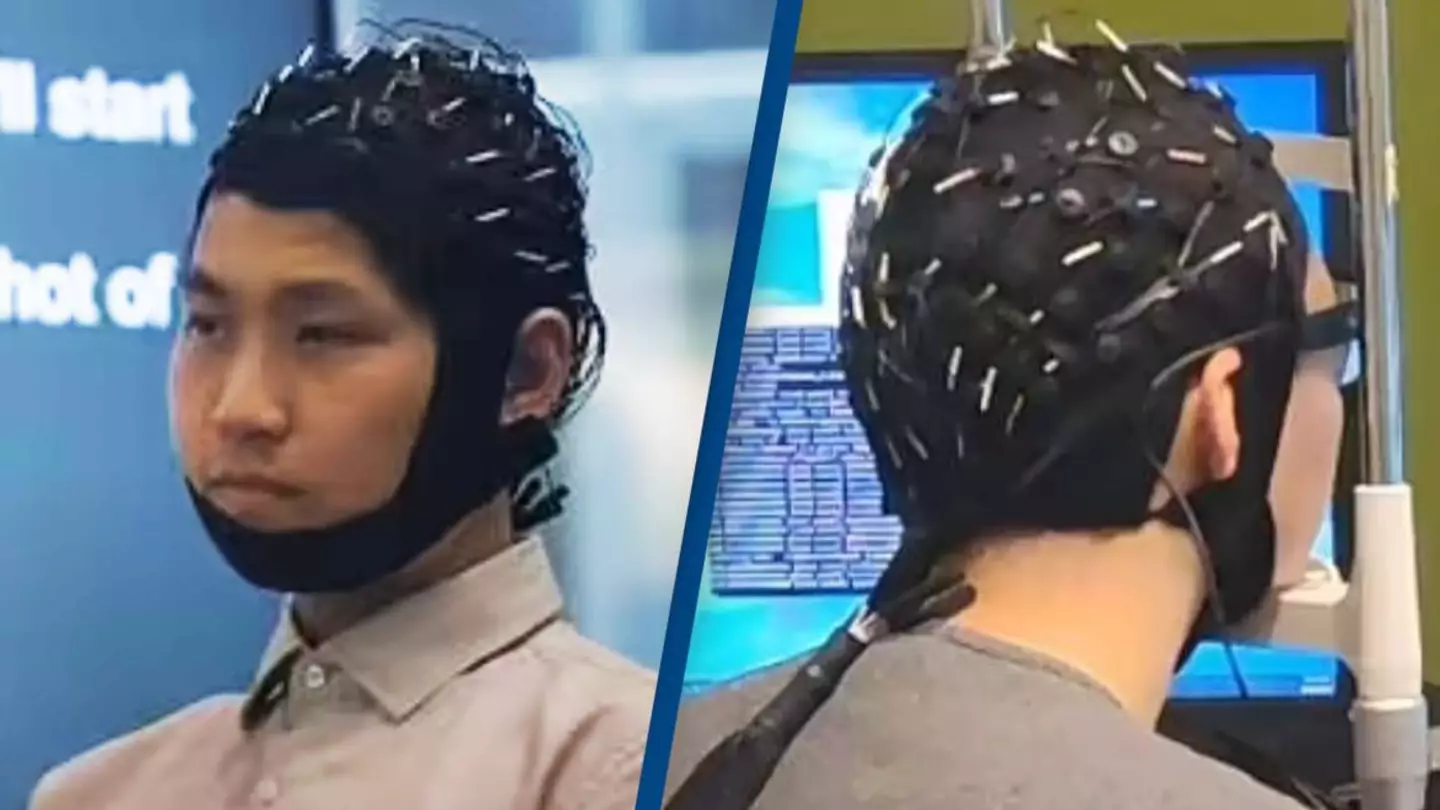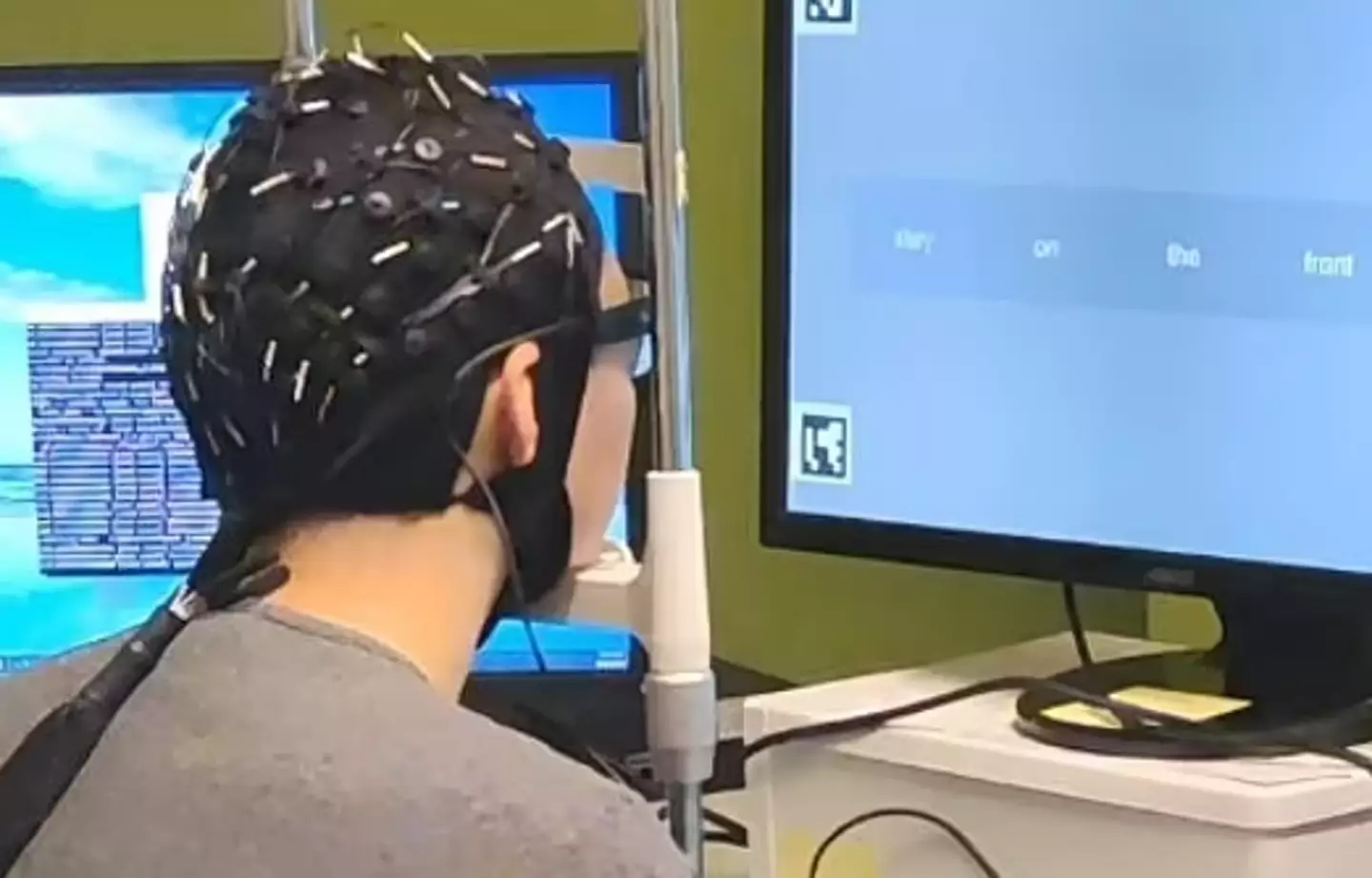
The future is well and truly here.
Scientists at the University of Technology Sydney have revealed a helmet that can actually read peoples' minds.

The researchers have developed a helmet that can read brain waves and translate them into readable text, all via the magic of AI.
Advert
The study was tested by having participants don the sensor-filled hat.
They then read out a random text, while AI sensors tracked their brain waves.
These brain waves were then translated into another text, which seemed to closely resemble the first.
These electroencephalogram (EEG) recordings were converted into the text using an AI model called DeWave.
This means the helmet was essentially reading peoples' minds!
One example asked the participant to think: "Good afternoon! I hope you're doing well. I'll start with a cappuccino, please, with an extra shot of espresso."
The screen then showed the AI 'translating the brainwaves into a text response.'
This read: "Afternoon! You well? Cappuccino, Xtra shot. Espresso."
Which you have to admit, is a pretty close match!
However, not all of the translations were quite so successful.
The initial study only had 29 participants, and had around a 40% accuracy rate.
Nonetheless, this is a major advancement in the technology!

Chin-Teng Lin at the University of Technology Sydney (UTS), Australia, says the technology is non-invasive - despite the fact it's said to be translating your brainwaves, relatively inexpensive and easily transportable.
He continued: "This research represents a pioneering effort in translating raw EEG waves directly into language, marking a significant breakthrough in the field.
"It is the first to incorporate discrete encoding techniques in the brain-to-text translation process, introducing an innovative approach to neural decoding.
"The integration with large language models is also opening new frontiers in neuroscience and AI."
This helmet-style of translating brain waves via AI is far less invasive, ethically ambiguous, and potentially dangerous than ideas such as Elon Musk's Neuralink, which advocates insertion of a microchip inside the brain.
DeWave translates the EEG signals into words using large language models (LLMs) based on large amounts of EEG data from a BART model, combining BERT’s bidirectional context and utilizing the ChatGPT left-to-right decoder.
Yeah...we're not so sure either.
Chin-Teng Lin hopes to continue with his research and achieve up to 90% accuracy with the readings in the future, so watch this space!
Topics: Technology, Elon Musk, Robotics
